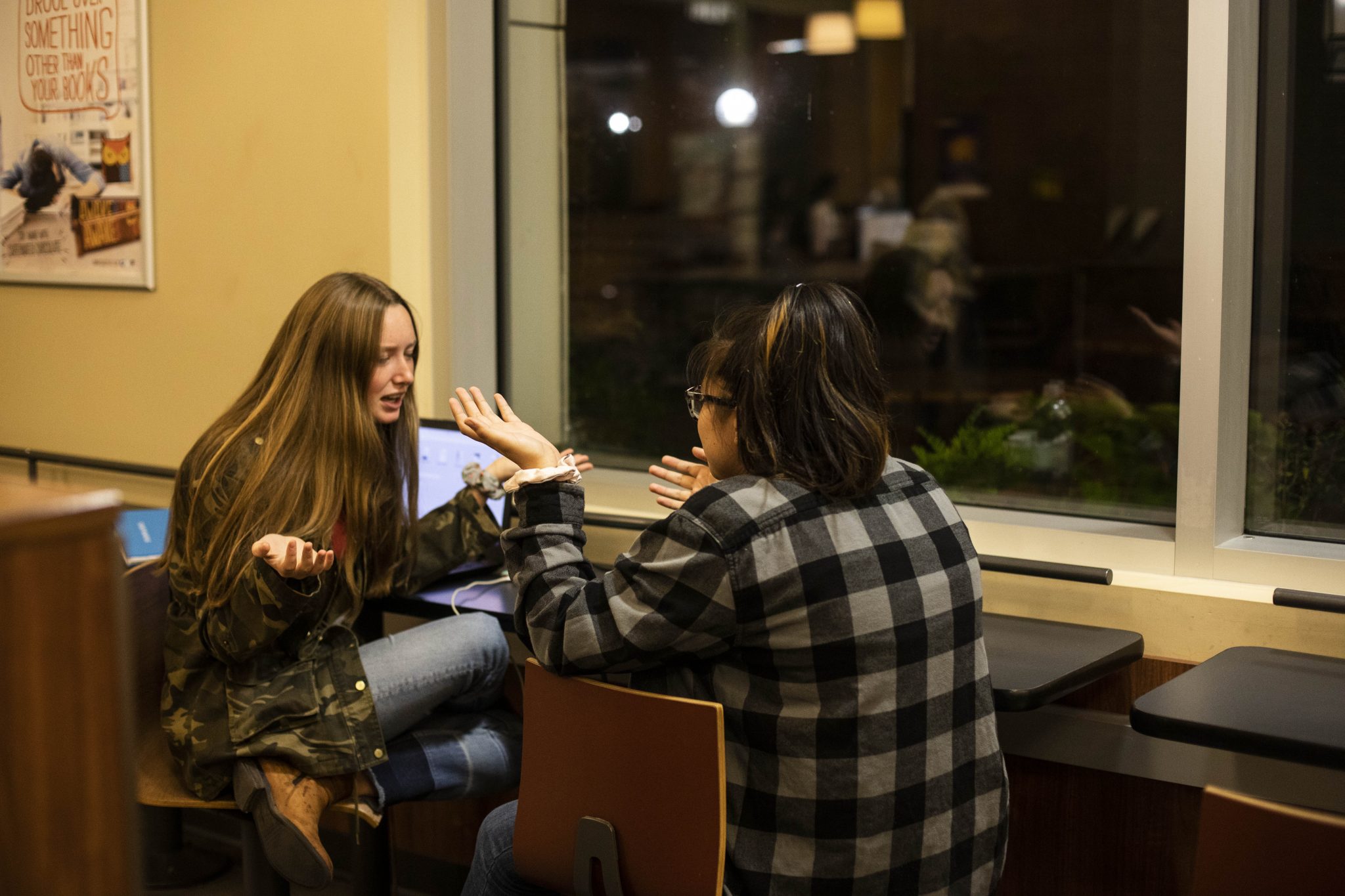On-campus roommate conflict resources


Living independently while going to school often means having to navigate one aspect of university life that many students aren’t prepared for — roommates.
Sharing your space with other people — in many cases, complete strangers — can be challenging, especially when conflicts arise with the people you’re expected to share your space with.
And while your first instinct may be to lock yourself in your room to avoid making any potential roommate disagreements worse, Laurier has resources on campus that are designed to help resolve housemate issues and difficult living situations.
The Office of Dispute Resolution and Support provides students with the tools to work through a variety of social conflicts, and they can provide assistance with problems that many students experience throughout their time in university between faculty, fellow classmates and roommates.
Ceara Rafalski, an early resolution support coordinator at the Office of Dispute Resolution and Support, assists students in the process through a variety of methods.
“I find that with students, what I can do if weʼre looking at conflict, is I can do conflict coaching, one-on-one — they can come and show me some email communications, if theyʼve gotten themselves in some kind of a bind, we can draft an email together, I can also do scripting with them to get a difficult conversation going, and then they can take it from there. We can also do roleplaying: as much as people cringe at roleplaying … it builds a comfort level with them,” Rafalski said.
Communication plays a huge role in properly tackling everyday situations and disagreements, and it’s something that students often struggle with doing effectively.
“People forget that communicating is crucial: in our relationships, our successes, everything. We take for granted as well that people understand what we mean, when we say something, which they donʼt; so I find that sitting down and having a structured, facilitated conversation really gives people an opportunity to speak, but to listen, and co-create what theyʼre going to do going forward, to get out of conflict and make sure they donʼt have it happen again,” Rafalski said.
And the next time your roommate pisses you off by eating your leftovers or leaving a mess in the kitchen, perhaps the best method of addressing it isn’t to make an angry Tweet and put them on blast to blow off steam
We take for granted as well that people understand what we mean, when we say something, which they donʼt; so I find that sitting down and having a structured, facilitated conversation really gives people an opportunity to speak.
— Ceara Rafalski, early resolution support coordinator at the Office of Dispute Resolution and Support
“I think people donʼt understand the power of their words. I think thatʼs a really big omselves, that not considering what theyʼre saying and how that could be taken and misunderstood,” Rafalski said.
As well, ignoring any problems that you may have just to “keep the peace” usually allows them to grow in severity and continue without a positive outcome.
“But I think also think that another problem, too, is that people donʼt know how to address it. They either donʼt address it, so it festers, and it starts to bother them, and then they tell these stories that [turn] it into a much larger issue than it needs to be … or they let emotions run at the forefront, and then they get angry, or sad … and they try to address it through emotions, without figuring out what is strategically the best way to do it. And so I find that those come into play no matter what the issue at hand is, that always has some kind of nuance with whatʼs going on,” Rafalski said.
With the issues she sees on a daily basis and the commonality that threads many of them together, Rafalski offered five tips to students for resolving conflict in these situations:
- Stop, take a breath and get grounded. Put into perspective that this is something you can work through.
- Be mindful of your non-verbal communication and behaviours that could be unknowingly exacerbating the conflict.
- Consider there is more than just your perspective in the matter. Be empathetic to other people involved and open to hearing from them about how they have been impacted. Really hear what they are saying and ask questions to better understand.
- Take responsibility for your actions.
- Be open to engaging in dialogue about resolution. Present your ideas and ask for others’ ideas. Try to find a resolution that feels good to everyone involved. Be prepared that each of you may have to give up something to get a successful resolution.
And if you still need assistance with a dispute you’re having, the Office of Dispute Resolution and Support, located on the main floor of the Arts building, is there to offer help where you may need it.
“We have an email address — disputeresolution@wlu.ca; we also have a main line, ex. 3322, and make an appointment through that. What I do is I try to get a little bit of info from them — not too much, because sometimes people are a little hesitant on sharing — but just to make sure that if theyʼre asking something that is way outside of my scope, I can redirect them to where they need to be … and I always open my door to anyone who wants to sit and spend the hours talking about whatʼs going on, what I can do to help them through it [and] if itʼs not me, I make sure they get connected somewhere else on campus,” Rafalski said.


